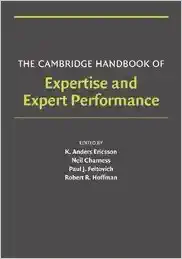WRITTEN DISCOVERY EXPERIMENTS: STARTING WITH INTERROGATORIES
Many instances of written discovery involve several “instructional” sectional sections with numerous provisions. Metaphorically speaking these amount to “You must answer our questions in this way and not that.” These include definitions, instructions, and demands of various sorts. (“You must include cover all of the following. . . .) For the most part, in practical terms for the usual case, they are useless, and seldom is to be found a case which punishes a respondent for failing to act in accordance with one of the obscure ones. (I even knew a lawyer once who bragged that he had constructed over many years a wholly maximal set of these provisions which he used in all his cases.)
Of course many of these passages are “boiler plate.” “The term ‘You’ means the defendant.” (My bragging friend, of course, got a lot of his additions from some other boiler plate instructional.)
Keeping in mind the fact that discovery usually amounts to at least 50% of expenses in any litigation (including attorney fees in discovery activities), discovery is very expensive. This can be a real problem when a “Big Guy” is up against a “Little Guy.” Since litigation is in many ways, metaphorically speaking, a kind of warfare,* it can be a “war of attrition,” and attrition can be measured in many ways, e.g., driving up expenses, making the process last along time, and seeking the ruination the emotional life of the other side, not to mention that person’s will. (*When you have an system which is its announced essence adversarial, how could any dispute be otherwise. So much for real justice.)
Here are several suggestions.
1. Consider making objections to problematic instructions, definitions, etc. Don’t mess with the simple ones. especially if they are short. I recommend, for example, objecting is two people or entities are defined as one person. (The “defendant”is defined as X and Y, when X and Y are not the same person or entity.)
2. The rules may require the defendant to repeat virtually everything that is in the discovery propounded. This may require retyping a large number of pages. This involves expense. Consider leaving all of the instruction out of the response, and just object and then proceed, e.g., answer. I do not recall any motion to compel or motion for sanctions based upon not reprinting the. If something has to be said, just object to the unreasonable or burdensome ones.
3. In responding, simply incorporate the ones used by the propounder with alterations mentioned as needed, subject to objections.
4. In propounding written discovery simply incorporate their instructional parts. Subject to even hand written marginalia. (Example: If interrogatories of a plaintiff say “‘You’ refers to Elijah the defendant.” simply say “The instructional sections of the plaintiff’s interrogatories are incorporated, except that the term ‘You’ is to be taken to name the Plaintiff, Sodom.” And of course there may be a few other alterations, but don’t do too many.
Incorporation can be done in at least three ways: (i) put in whole pages and alter with marginalia; (ii) just say your “incorporating except for” and then list what changes you are making, (iii) cut out pieces you want to use and actually physically paste them in. Very inelegant and store-front-lawyer looking; eyebrows will be raised; the other side will look down on the lawyer who does this. But if your client is short of funds, it’s still service to your client.
5. The only way to look cheaper and less real-lawyer like is to cut and paste the actual questions that have been asked of you. Remember. Your responses are suppose to physically match up with the requests. This requires retyping, I think, if the requests come in PDF. Again, might not zealous pursuit of your client’s interest require you to hold his/her/its/their expenses down? Inelegance is not actually inconsistent with zealousness unless the other side reasonably thinks it might help them win, e.g., victory via attorney shame infliction. But the “cheap-ness” and/or crudity of this method can be determined by the address of you office, so probably no harm is likely to be done–or so it can be argued.
I certainly do not recommend that a lawyer split up the responses from the request or question. That’s contrary to the rules and therefore not to be suggested. The practitioner desirous of doing this needs to determine whether there are any cases in which attorney fees or sanctions have been awarded for this kind of conduct.
Here’s another one. As the other side to give you a copy of their interrogatories but not “read only” but permitting you to make the “Respond” area larger. Then copy what you’ve done and type in the answer. Don’t worry about their condescending judgment manifest bullying judgment of you, you’re actually showing a kind of unorthodox courage. Take their barely express and therefore subtle haughtiness in stride.
Here’s another one. As the other side to give you a copy of their interrogatories but not “read only” but permitting you to make the “Respond” area larger. Then copy what you’ve done and type in the answer. Don’t worry about their condescending judgment manifest bullying judgment of you, you’re actually showing a kind of unorthodox courage. Take their barely express and therefore subtle haughtiness in stride.





Recent Comments